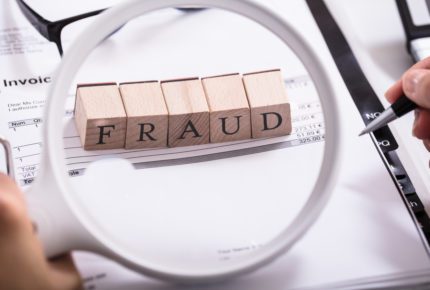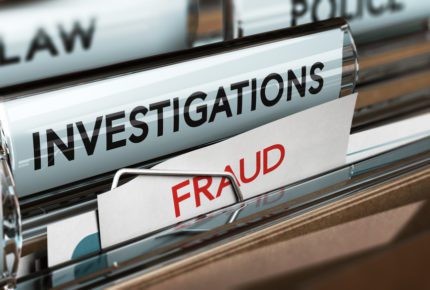

If you or a loved one are facing a first-time false accounting allegation, feeling worried about the road ahead plus a sense of urgency to start preparing your defence is understandable. False accounting is judiciously addressed by English courts, so promptly appointing an experienced defence solicitor is highly recommended. This article seeks to unpack what happens for a first time offence of false accounting. We outline the offence and its elements, provide some examples, explain sentencing risks for first-timers, and weigh imprisonment prospects. We also outline how to get in touch with our team for legal assistance, should your case seem like it will progress.
What is the offence of false accounting?
False accounting is an offence under the Theft Act 1968 in English law. It involves dishonestly destroying, defacing, concealing, or falsifying any account, record, or document required for accounting purposes.
Section 17 of the Theft Act 1968 contains the offence of false accounting. For a conviction, the prosecution must generally establish:
- The defendant falsified, concealed, destroyed, or defaced an account or accounting record.
- They acted dishonestly and without authorization in tampering with accounts.
- Their conduct was intended to provide an unjust advantage or cause loss.
False accounting carries a maximum penalty of 7 years’ imprisonment and/or an unlimited fine, and prosecutions most often occur in the Crown Court given the financial complexity of the offence. Sentencing considers factors like value involved, sophistication, damage caused, and persistent course of conduct. Forensic accountants typically assist police investigations and may appear in court to provide expert testimony.
What are some examples of false accounting?
Examples of this offence include:
- Recording fictitious expenses, sales, or liabilities to reduce taxable income.
- Backdating invoices to claim expenses in the wrong accounting period.
- Inflating inventory by counting stocks that do not exist or double-counting.
- Failing to record transactions such as sales or purchases to under-report revenue.
- Concealing diverted funds through fabricated ledger entries and memos.
- Destroying or altering documents that would reveal fraudulent accounting activity.
- Using ‘ghost employees’ with fake payroll records to embezzle company funds.
- Booking one-off transactions as recurring to smooth out income fluctuations.
- Maintaining two parallel sets of accounts, one false and one accurate.
- Making false entries about loan repayments to overstate cash flow.
- Exaggerating expenses by altering purchase orders, bills and receipts.
- Misclassifying asset sales as revenue to boost income figures.
- Undervaluing inventory at sale to create hidden reserves for future manipulation.
- Disguising bribes or kickbacks through falsified invoices and ledgers.
What happens if you are suspected of committing false accounting in the UK?
If you are suspected of false accounting in the UK, you are most likely to face investigation and potential prosecution under the Theft Act 1968. Because false accounting involves activities with serious consequences, like altering financial records to misrepresent a company’s position (which could then impact stock values), the police and other financial crime agencies are keen to ensure that investigations are thorough.
Here’s a general outline of what could happen:
- Initial investigation – if false accounting is suspected, the police or another relevant regulatory authority will initiate an investigation. This may involve examining accounting records, financial statements, invoices and other evidence indicating falsification. You may be interviewed under caution where anything you say could be used as evidence later. Having a solicitor present is advisable.
- Arrest or voluntary interview – you could be arrested or asked to voluntarily attend an interview at a police station. Even if voluntary, this is serious and may result in charges. Legal representation is again highly recommended.
- Charging decision – after investigating, authorities will consult the Crown Prosecution Service (CPS) on whether to charge you. They will consider if there is sufficient evidence and if it is in the public interest to charge you.
- Court process – if charged, your case may be tried in the Magistrates’ Court or Crown Court before a jury, if you do not plead guilty at the earliest opportunity.
- Sentencing – if convicted, the court will consider various factors when deciding your sentence. While maximum penalties depend on the offence, non-custodial sentences are possible for first offences depending on circumstances. Potential options include fines, community service, or suspended sentences.
It is vital that you engage a solicitor as early on in the process as you can if you are facing such accusations, as the exact process depends on your specific situation and the impacts on your personal and professional life may be significant.
What is the sentence for false accounting in the UK?
False accounting involves dishonestly destroying, defacing, concealing, or falsifying any account, record, or document required for any accounting purpose. It carries a maximum sentence of 7 years’ imprisonment under the Theft Act 1968.
Aggravating factors like large scale fraud, abuse of position, previous convictions, and attempting to conceal other crimes can increase sentences, because those factors indicate a greater degree of culpability and harm. Mitigating factors, such as a guilty plea, cooperation with authorities, no previous convictions, showing remorse, or having acted under duress may reduce them.
Additional penalties can include director disqualification, professional disciplinary action for accountants or auditors, company dissolution, and confiscation of criminal assets under the Proceeds of Crime Act 2002. False accounting often accompanies crimes like tax evasion and money laundering, which may be charged in parallel and lead to further criminal sanctions and imprisonment.
Regulators like the Financial Conduct Authority (FCA) may also impose heavy fines for accounting misconduct in listed companies or financial services firms.
Are there any defences to false accounting?
Here are some potential defences that can be raised in response to allegations of false accounting:
- Lack of intent – the prosecution must prove that you had dishonest intent and willfully engaged in false accounting. If you can demonstrate that any inaccuracies or misleading information were unintentional, made in error, or due to a mistake, this could provide a defence.
- Insufficient evidence – skilled defence lawyers will carefully assess the strength of the prosecution’s evidence, looking for inconsistencies, unreliable witnesses, or gaps in the evidence chain. Challenging the sufficiency of evidence and raising reasonable doubt can be an effective defence strategy.
- Professional advice or interpretation – if you can show that you relied on professional advice or interpretation of accounting standards, and the false accounting was a result of a genuine misunderstanding or misapplication of those standards, this may serve as a defence. It is important to establish that you acted in good faith based on expert guidance.
- Lack of personal involvement – if you can establish that you were not directly involved in the preparation or manipulation of the false accounting records or that you had no knowledge of the inaccuracies, this may serve as a defence. It is crucial to demonstrate that you were not complicit in or aware of any fraudulent behaviour.
- Duress or coercion – if you can demonstrate that you were coerced or under duress to engage in false accounting, this may serve as a defence. You must establish that the coercion was immediate or imminent and that you had no reasonable alternative.
- Procedural errors or irregularities – if there were procedural errors, irregularities, or violations of accounting regulations during the investigation or in the handling of your case, it may be possible to challenge the validity of the charges. This defence focuses on any flaws that may have compromised the fairness of the investigation or prosecution.
It cannot be stressed enough that false accounting is a serious offence with significant legal consequences, and not only for your business. If you are facing allegations of false accounting, seeking immediate legal advice from an experienced false accounting solicitor is crucial.
Will I go to prison if it is my first time committing false accounting?
Predicting whether a first time false accounting offence could result in imprisonment is difficult, as courts consider numerous factors during sentencing. The scale and complexity of the deception is a key consideration – extensive, sophisticated falsehoods are viewed less sympathetically than minor breaches. The losses caused and damage to public trust in accounting standards will also be assessed, with severe impacts increasing chances of custody.
Mitigating factors like cooperating with investigations, admitting guilt early, and attempting to make amends, may assist first-time offenders in arguing against prison. On the other hand, aggravating factors like acting deliberately to enable other crimes or conceal misconduct point towards harsher punishment.
While simple record-keeping errors may warrant suspended sentences, judges are reluctant to have an offender avoid prison for substantial intentional falsification given the gravity and consequences of the deception. Those facing prosecution should obtain expert legal advice on realistic prospects of imprisonment based on precedents for comparable cases. An experienced fraud defence lawyer will be able to present mitigation arguments that may help you avoid prison.
Where to get further help
If you or someone you care about is charged with false accounting, getting expert legal help immediately is very important. For first timers, charges could even be dropped pre-trial with the right advocate on your side. To understand your options, contact Stuart Miller Solicitors for a free consultation.
OUR COMMITMENTS TO YOU:
-
Responsive
A legal expert will consult you within 24 hours of making an enquiry.
-
Empathetic
We will always treat you with trust, understanding and respect.
-
Specialised
Your case will be handled by an expert who specialises in your type of offence.
-
Proactive
We will take early action to end proceedings as soon as it is practically and legally possible to do so.
-
Engaged
You will be kept updated on your case at all times. We will provide a named contact available to answer your questions.
-
Caring
We understand this is a difficult and stressful time for you and your family. Our team will support you every step of the way.
-
Tenacious
We will never give up on your case. We fight tirelessly to get you the best possible outcome.
